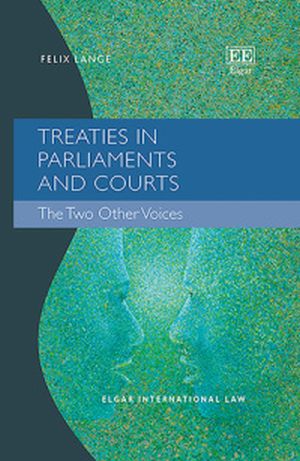
Highlighting the close relationship between foreign relations law and international law, this impressive book places parliament and domestic courts’ engagement with treaties at the heart of its inquiry. It presents a timely assessment of the impact that different rules of constitutional law have on parliamentary and judicial approaches to treaties in four different states (Germany, India, South Africa and the US), thereby incorporating valuable comparative dimensions.
With intellectual rigour, Felix Lange demonstrates how diverse conceptions of foreign relations law affect whether parliaments act as promoters, shapers or translators of human rights treaties, the Rome Statute to the International Criminal Court, and climate change treaties. Lange not only analyses the ways in which domestic courts rely on treaties through consistent interpretation and direct application, but also how they may dismiss treaty provisions as non-self-executing or employ the concept of non-justiciability in matters of foreign affairs. Ultimately, Lange embraces the view that parliaments and courts are being increasingly heard and suggests that their voices should become even louder.
This book will prove indispensable to academics and students interested in law and politics, public international law and constitutional law. Legal practitioners with a keen interest in these areas will similarly benefit from the connections drawn between international law and constitutional law.